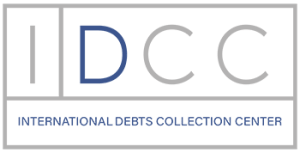What are debt collection services? Many people find themselves asking this question when they are faced with mounting debt and constant calls from collection agencies. These services can be a lifeline for those struggling to pay off debts, offering negotiation and payment plans to help individuals get back on track.
However, there is a dark side to the industry, rife with scams and predatory practices that prey on vulnerable consumers. With varying degrees of regulation and oversight, it can be difficult to determine which debt collection services are legitimate and which are out to take advantage of those in financial distress.
In this article, we delve into the murky world of debt collection services, exploring the pros and cons of utilizing these companies and shedding light on the potential pitfalls. Are these services truly a savior for those drowning in debt, or are they nothing more than scammers out to make a quick buck? Join us as we uncover the truth behind debt collection services.
Table of Contents
1. The Impact of Debt Collection Services
Debt collection services can assist creditors in recovering unpaid debts and maintaining cash flow. However, these services can also irritate debtors with frequent calls and letters, sometimes using aggressive tactics. It is important for individuals to know their rights when dealing with debt collectors, as there are rules to prevent harassment. Selecting a reputable debt collection agency is vital for a smooth resolution. By staying informed and taking charge of debts, individuals can manage financial challenges confidently.
2. Common Practices and Debated Ethics
Debt collection agencies are required to follow laws that prohibit aggressive tactics. It’s important for individuals to know their legal rights when dealing with debt collectors. The Fair Debt Collection Practices Act sets standards for ethical collection practices and prevents abusive behavior. Reputable debt collection agencies prioritize transparency and communication with debtors.
They work towards mutually beneficial solutions like payment plans or settlements. Building a respectful relationship helps resolve debts ethically and efficiently. Professionalism and respect from debt collectors enhance trust and cooperation in the financial system.
3. Legal Rights and Consumer Protection
According to the Consumer Financial Protection Bureau, individuals have the right to be treated fairly and respectfully during debt collection processes. The bureau’s homepage provides valuable resources on understanding and asserting these rights. The Consumer Financial Protection Bureau offers guidance on handling debt collectors, emphasizing the importance of accurate information and clear communication. Consumers are entitled to dispute debts and receive verification if requested. Being aware of these rights can help individuals navigate debt collection situations with confidence and ensure fair treatment. Visit the Consumer Financial Protection Bureau’s homepage for more detailed information on protecting consumer rights in debt collection scenarios.
4. Choosing the Right Debt Collection Agency
These companies specialize in negotiating with debtors and use various strategies to ensure payment. Hiring a reputable debt recovery agency can lead to positive outcomes as they are knowledgeable in handling debt collection, making the process easier and increasing the chances of retrieving the money owed. When selecting a debt recovery agency, it is essential to consider their reputation, track record, and collection methods. A reliable agency will follow ethical practices, adhere to rules, and interact with debtors professionally. It is also crucial to understand their fees and terms before choosing a debt recovery agency.
By selecting a trustworthy debt recovery agency, individuals and businesses can confidently and effectively handle debt collection. A reputable agency will know how to negotiate with debtors and ensure payment is made. Their expertise in debt collection can make the process easier and improve the chances of recovering the money owed. When choosing a debt recovery agency, it is important to consider their reputation, track record, and collection methods. A reliable agency will follow ethical practices, comply with rules, and communicate with debtors professionally. Understanding their fees and terms is also crucial before making a decision.
voicedrop.ai tagarticly.ai taginfluencermarketing.ai tag
End Note
In conclusion, the world of debt collection services remains a murky and often misunderstood industry. With implications for both creditors and debtors, the process can be fraught with ethical dilemmas and legal complexities.
From relentless phone calls to aggressive tactics, the methods used by collection agencies can be jarring and unsettling. However, with proper regulation and oversight, these services can provide a valuable resource for businesses looking to recoup unpaid debts.
As the landscape of debt collection continues to evolve, so too must our understanding of its nuances and potential pitfalls. It is imperative that we approach this topic with a critical eye and a commitment to transparency and fairness.
Only then can we truly navigate the labyrinthine world of debt collection services with clarity and integrity. Good luck out there, dear readers.
Stay vigilant and informed. And remember, when it comes to debt collection, knowledge is power.








